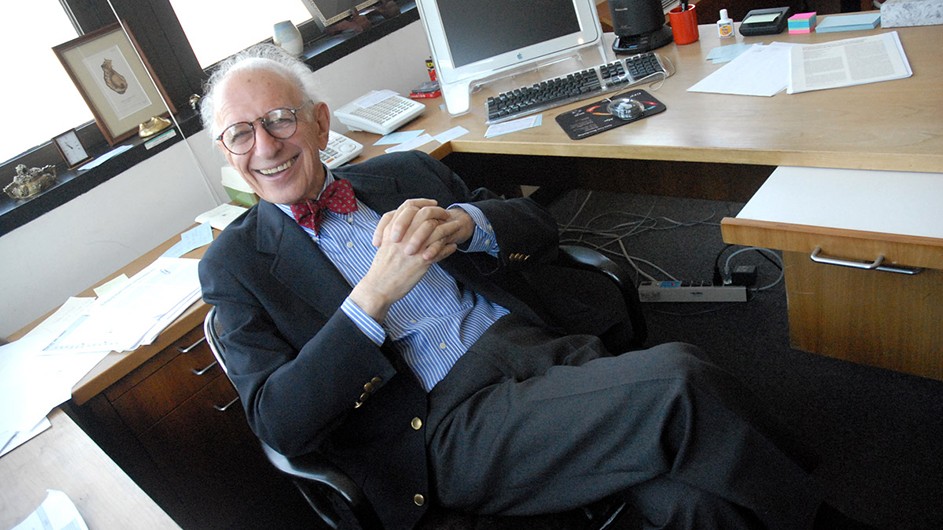Eric Kandel, Nobel Prize Winner and University Professor, to Retire

Dear fellow members of the Columbia community:
I write to share the news that Eric Kandel, the Nobel Prize-winning scientist and beloved University citizen, will be retiring on August 31, 2022. Eric is a University Professor, Sagol Professor of Brain Science, Codirector of Columbia’s Zuckerman Institute, Founding Director of Columbia’s Kavli Institute for Brain Science, and Senior Investigator at the Howard Hughes Medical Institute.
To celebrate Eric is to marvel at the scope and scale of his contributions to the study of the mind. He has investigated how synapses in the brain can be modified by learning, and how molecules and genes help to turn short-term memories into long-term ones and suppress others entirely. In 2000, Eric shared the Nobel Prize for groundbreaking work into the changes that brain cells undergo when memories are made. His research has helped make significant advancements in the study of diseases like Alzheimer’s and schizophrenia.
When plans were being made for Columbia’s expansion into Manhattanville, I believed that one of the cornerstone initiatives had to be devoted to brain science and its connections to the study of mind in every discipline and field of inquiry all across the University. From the start, Eric was centrally involved in the creation of what is now called the Zuckerman Mind Brain Behavior Institute. Two decades later, more than 850 researchers across 19 academic departments call the Jerome L. Greene Science Center in Manhattanville home. Every branch of the scholarly community has been touched.
Learn More
Eric first came to Columbia in the mid-1950s to work in the laboratory of Dr. Harry Grundfest and then returned in the early 1970s, after a period at the New York University School of Medicine, to cofound Columbia’s first neuroscience department. He wrote The Disordered Mind: What Unusual Brains Tell Us About Ourselves and other best-selling books, and appeared as an expert in television and print interviews. His name is on more than 500 research papers, and he has received countless awards, including the Wolf Prize in Medicine, the President’s National Medal of Science, and the Lasker Award.
In all that he has accomplished, Eric embodies the genius, joy, and humanity of living a life of the mind. His interest in exploring the complexities of human behavior was sparked by childhood experiences growing up in Vienna in the 1930s. Following the rise of the Nazis and Hitler’s march into Vienna, Eric and his family escaped to New York in 1939, just prior to the outbreak of World War II—he was only ten years old. Eric thrived in the academic and scientific communities of the United States and ascended to the top of his field. Along the way—at Columbia, in fact—he met Denise, his wife of more than 65 years. Denise is also a brilliant scientist and a Professor of Sociomedical Sciences, in Psychiatry, at the Mailman School of Public Health. She and Eric are partners in every way, including in their work—in recent years they have together pursued groundbreaking research focused on the molecular bases of epidemiological paradigms. I know Eric would be the first to say that Denise has been and remains the chief source of joy and inspiration in his life.
Everything Eric has accomplished, despite unimaginable personal tragedy at a very young age, has been done with warmth, passion, and humor, alongside an infectious laugh and a signature bow tie. His retirement is a seemingly life-altering moment for all of us. Jean and I join with all of you in wishing him and Denise, whom we are honored to count as friends, our profound gratitude and our heartfelt best wishes for the years ahead.
Sincerely,
Lee C. Bollinger